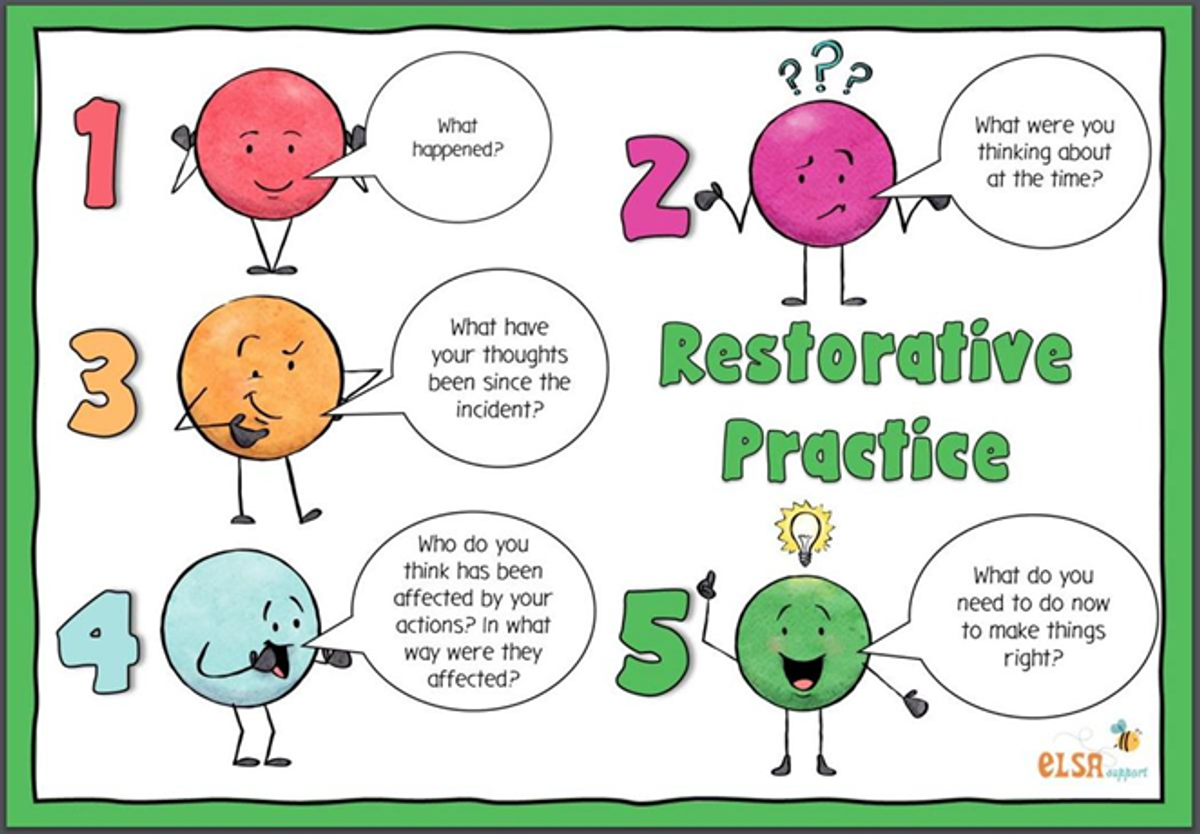Student Health & Wellbeing News

Restorative Practices
As our students develop their social skills, inevitably some students will make mistakes, behaving in ways that are hurtful or harmful to others. When mistakes like this occur at SPS, we use a restorative approach to help heal the harm done and set things right.
A restorative approach differs from more punitive approaches to behaviour management in that we focus on the harm done, and what must happen to set things right. Behaviour mistakes are managed in terms of how others have been affected, and we aim to bring about a sense of remorse and restorative action on the part of the 'offender', and forgiveness by the 'victim'.
Research shows that a restorative approach to behavioural mistakes results in more lasting behavioural change than authoritarian measures, and improved relationships between those who harm, and those who have been harmed.
A typical restorative chat would involve all concerned parties. Everybody has the opportunity to explain their side of the story, and those affected are able to say how they would like the situation to be resolved. Usually, children simply ask for an apology and sometimes, if they are not feeling safe around someone, they might ask for the 'offender' to be withdrawn from the playground. 'Offenders' are induced to feel remorse and empathy for those affected, and we aim to mend broken relationships.
Staff members who run restorative chats will follow a set structure or script, to guide the discussion. The majority of behaviour mistakes at SPS are managed through this restorative process.
A restorative approach may not be appropriate for significant, major incidents. In such cases, students will be referred immediately to school leadership.

